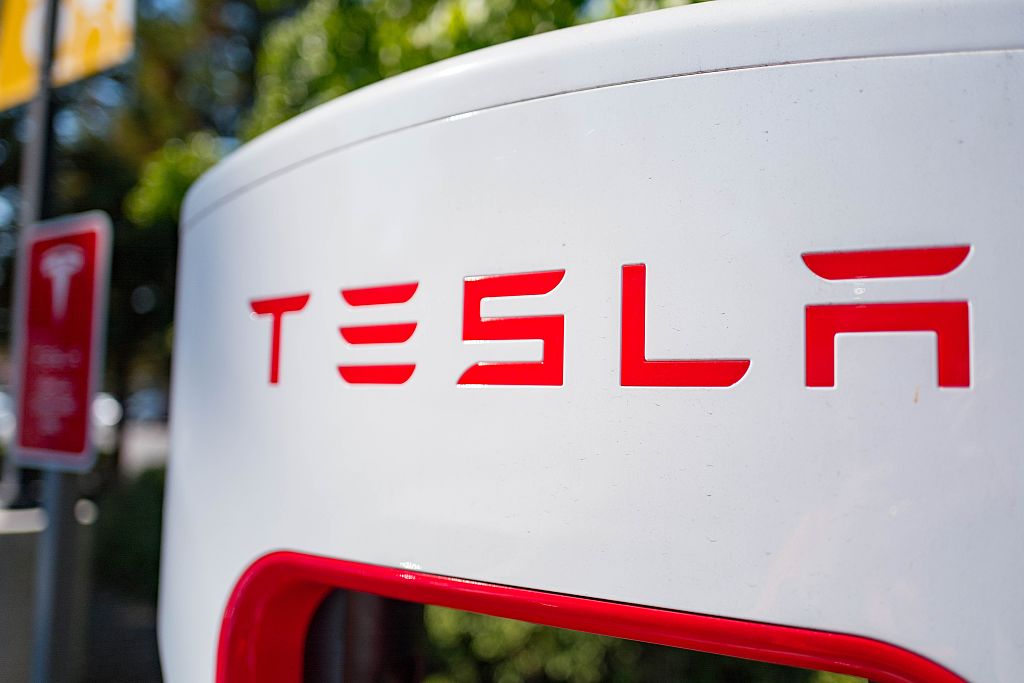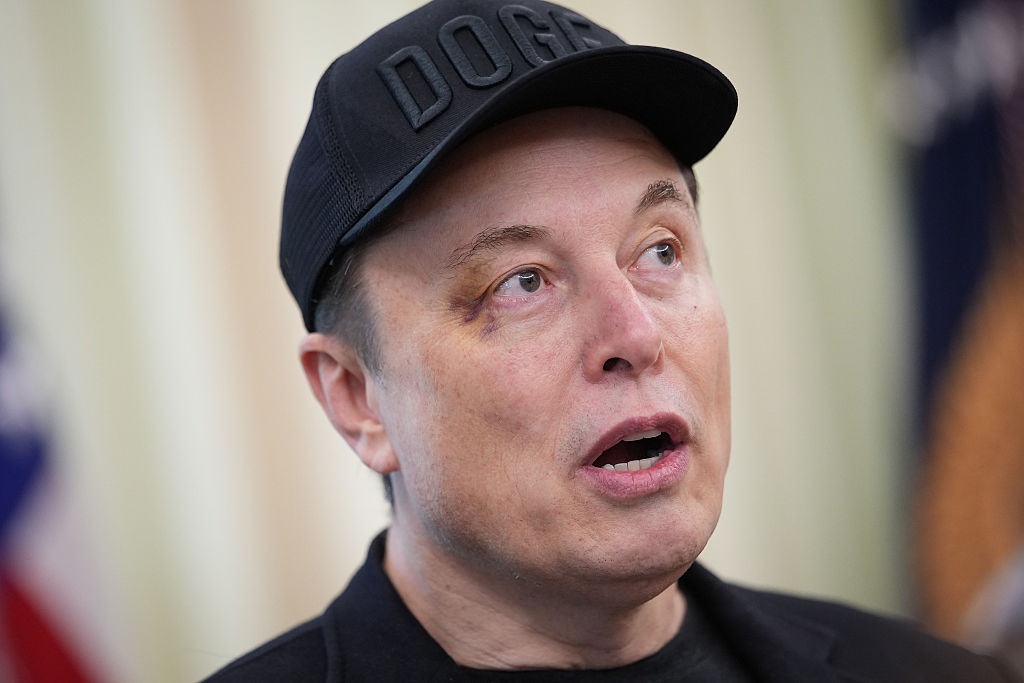The electric-car bubble could get an awful lot bigger from here
The switch to electric cars is driving a huge investment bubble. But that’s not necessarily a bad thing, says John Stepek. Fortunes will be made and lost – but bubbles get things done.


Get the latest financial news, insights and expert analysis from our award-winning MoneyWeek team, to help you understand what really matters when it comes to your finances.
You are now subscribed
Your newsletter sign-up was successful
Want to add more newsletters?

Twice daily
MoneyWeek
Get the latest financial news, insights and expert analysis from our award-winning MoneyWeek team, to help you understand what really matters when it comes to your finances.

Four times a week
Look After My Bills
Sign up to our free money-saving newsletter, filled with the latest news and expert advice to help you find the best tips and deals for managing your bills. Start saving today!
Bubbles are a part of investment life. You get big bubbles, like the dotcom boom. You get little bubbles, like the ones that erupt in sectors like cannabis or 3D printing every so often.
Ideally, as investors, we’d like to ride a bubble up, then step off, and watch it collapse back down, safely sitting on a huge pile of cash.
It’s a lot harder in practice than in theory. But in case you want to give it a shot, I think we’ve got the makings of a real humdinger of a bubble forming right now.
MoneyWeek
Subscribe to MoneyWeek today and get your first six magazine issues absolutely FREE

Sign up to Money Morning
Don't miss the latest investment and personal finances news, market analysis, plus money-saving tips with our free twice-daily newsletter
Don't miss the latest investment and personal finances news, market analysis, plus money-saving tips with our free twice-daily newsletter
Bubbles can be good for us
Bubbles often come with very negative connotations. Bubbles raise your hopes on the way up, then smash them to pieces on the way down. Bubbles burst. If you’re the one holding the bag when they do, you’ll lose money, often a lot of it.
Bubbles are also extraordinary breeding grounds for fraud. Our low-interest-rate world has already created some vintage frauds in the last few years (Germany’s Wirecard is only the most recent). And I am absolutely positive beyond all doubt that we’re going to see some real stunners in the next few years.
But you know what else bubbles do? They get things done. Nothing gets an otherwise wildly ambitious or even borderline deranged plan of action over the starting line like the promise of getting rich beyond your wildest dreams.
Bubbles are how the railways got built. Bubbles laid the fibre-optic cables that enable the internet. If you really want to get a lot of people to spend money on laying out the infrastructure for a new era, then a good old-fashioned investment bubble is a very good way to do it.
And I reckon that’s what we might be seeing in the electric and alternative fuel vehicle market right now.
That probably sounds daft (and it might be). I mean, Tesla is already a one-stock bubble machine on its own – I’ve lost track of how many times you could have doubled or halved your money by buying it at various points throughout this year. And we’ve seen would-be electric-truck maker Nikola go through its own little boom and bust cycle already too.
And yet, when you look at what’s happening in the real world as opposed to financial markets, it feels as though we’re just at the beginning of this transport revolution, rather than near the end.
I’m not saying you should invest in Tesla, by the way. I genuinely still don’t know what to think about the company. But whatever you think of Elon Musk and all the hype he pumps out, the one thing that you can categorically say without doubt is that Tesla has produced an electric car that people want to drive.
That has proved a game changer for the sector. And it’s now about a lot more than just Tesla. Even as Musk was delivering another hit-and-miss PR moment yesterday in the form of “Battery Day” (which appears to have been a bit of a damp squib), Volkswagen was unveiling the ID4, which will be its first “affordable" electric SUV to be sold in the US, says tech site The Verge.
Politics and technology are aligning
Meanwhile, the political pressure to cut carbon emissions is only growing. Governments around the world are competing to see who can ban petrol and diesel cars first. There’s talk of the UK ban being pulled back from 2035 to 2030 now. You can see this as cynical “virtue signalling” – and you’d probably be right. But there’s more to it than that.
Car manufacturing is big business. It’s an industry that’s always been viewed as important by governments in every nation. So if we’re looking at a relaunch of the entire automotive sector, plus an all-new car replacement cycle, then every government wants to look like an attractive place to set up that business.
The desire to find some sort of economic and morale-boosting way out of the lockdown-induced hole will only be adding to this sense of mission.
Your personal view on this is irrelevant. The question of whether the electric car manufacturing process creates more lifetime emissions than a fossil fuel car is also irrelevant. The point is, it’ll happen because it’s the conventional and accepted wisdom that this is the way forward.
In turn, that means the bigger players in the sector are adapting to it and accepting reality and finding new ways forward (this is also the biggest risk for the likes of Tesla). The 2015 “Dieselgate” scandal was already pushing them in that direction. If big car manufacturers have the assurance that electric or hydrogen is now the future, whether they like it or not, then they’ll retool.
You then have to think of all the spin-off activity that goes into changing how we drive. Electric cars need different infrastructure – charging points rather than petrol pumps. They most probably require changes to our electric grid infrastructure, at both the grand scale and the micro scale. And this is before getting into the competition from hydrogen fuel cells.
There’s also the more distant future (but not that distant). Self-driving is the next big battleground and the area where companies will battle for a competitive edge. That’ll require all sorts of technology and sensors and the rest of it.
Of course electric cars are not new – even if you only count back as far as their first Tesla incarnation. But the move to mass adoption will be the thing that really gets this going. I suspect that a proper full-blown front-page mania is still to come.
How can you take advantage? I looked at a few options in last Friday's issue of MoneyWeek. But if I’m even close to being correct about its bubble potential, we’ll be writing a lot more about this topic in the months ahead. So subscribe here if you haven’t already – you get your first six issues free.
Get the latest financial news, insights and expert analysis from our award-winning MoneyWeek team, to help you understand what really matters when it comes to your finances.

-
 Can mining stocks deliver golden gains?
Can mining stocks deliver golden gains?With gold and silver prices having outperformed the stock markets last year, mining stocks can be an effective, if volatile, means of gaining exposure
-
 8 ways the ‘sandwich generation’ can protect wealth
8 ways the ‘sandwich generation’ can protect wealthPeople squeezed between caring for ageing parents and adult children or younger grandchildren – known as the ‘sandwich generation’ – are at risk of neglecting their own financial planning. Here’s how to protect yourself and your loved ones’ wealth.
-
 8 of the best houses for sale with electric vehicle charging
8 of the best houses for sale with electric vehicle chargingThe best houses for sale with electric vehicle charging – from a converted World War II control tower in Scotland, to a Victorian country house in Cumbria
-
 Key lessons from the MoneyWeek Wealth Summit 2025: focus on safety, value and growth
Key lessons from the MoneyWeek Wealth Summit 2025: focus on safety, value and growthOur annual MoneyWeek Wealth Summit featured a wide array of experts and ideas, and celebrated 25 years of MoneyWeek
-
 The Stella Show is still on the road – can Stella Li keep it that way?
The Stella Show is still on the road – can Stella Li keep it that way?Stella Li is the globe-trotting ambassador for Chinese electric-car company BYD, which has grown into a world leader. Can she keep the motor running?
-
 'EV maker Faraday Future will crash'
'EV maker Faraday Future will crash'Faraday Future Intelligent Electric is failing dismally to live up to its name, says Matthew Partridge
-
 Tesla seeks approval to supply electricity to UK homes – could it disrupt the energy market?
Tesla seeks approval to supply electricity to UK homes – could it disrupt the energy market?Tesla has applied for a license to supply UK households with electricity, but taking on the biggest providers could prove challenging
-
 What's behind the big shift in Japanese government bonds?
What's behind the big shift in Japanese government bonds?Rising long-term Japanese government bond yields point to growing nervousness about the future – and not just inflation
-
 Tesla shares slump over Trump/Musk feud
Tesla shares slump over Trump/Musk feudA war of words has sent Tesla shares spiralling to the company’s largest single-day value decline in history
-
 Tesla is no longer the world’s largest electric car maker. Should you invest?
Tesla is no longer the world’s largest electric car maker. Should you invest?Investors need to weigh up the potential of Tesla’s autonomous technology drive against struggles in its core carmaking business when deciding whether or not to invest